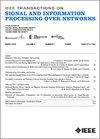瞬态流量下天然气管道的传感器故障检测、隔离和容纳
IF 3
3区 计算机科学
Q2 ENGINEERING, ELECTRICAL & ELECTRONIC
IEEE Transactions on Signal and Information Processing over Networks
Pub Date : 2024-03-13
DOI:10.1109/TSIPN.2024.3377134
引用次数: 0
摘要
天然气管道的监测高度依赖于不同类型传感器提供的信息。然而,传感器很容易出现故障,导致性能下降和泄漏或爆炸等严重危害。为防止灾难性故障,确保管道安全高效运行,及时诊断天然气管道中的传感器故障至关重要。本文研究了瞬态流条件下天然气管道中基于模型的传感器故障诊断技术。基于分布式数据融合的融合架构用于实现传感器故障检测、隔离和容纳(SFDIA)机制。融合架构由一组本地滤波器和一个信息混合器组成。本地滤波器并行估算状态变量,然后将其传输到信息混合器,以评估传感器故障并计算无故障状态估算值。本文研究了用于故障诊断的三种不同类型的融合滤波器,即基于集合卡尔曼滤波器(EnKF)、融合无香味卡尔曼滤波器(UKF)和融合扩展卡尔曼滤波器(EKF)的滤波器。结果表明,这三种滤波器都能成功地检测、隔离和处理传感器故障。本文章由计算机程序翻译,如有差异,请以英文原文为准。
Sensor-Fault Detection, Isolation and Accommodation for Natural-Gas Pipelines Under Transient Flow
The monitoring of natural gas pipelines is highly dependent on the information provided by different types of sensors. However, sensors are prone to faults, which results in performance degradation and serious hazards such as leaks or explosions. To prevent catastrophic failures and ensure the safe and efficient operation of the pipelines, it is crucial to timely diagnose sensor faults in natural gas pipelines. This paper investigates model-based sensor fault diagnosis techniques in a natural-gas pipeline under transient flow. A fusing architecture based on distributed data fusion is used for implementing the sensor fault detection, isolation, and accommodation (SFDIA) mechanism. The fusing architecture consists of a set of local filters and an information mixer. The local filters estimate the state variables in parallel, which are subsequently transferred to the information mixer to evaluate the sensor faults and compute fault-free state estimates. In this paper, three different types of fusing filters, namely based on the ensemble Kalman filter (EnKF), fusing unscented Kalman filter (UKF), and fusing extended Kalman filter (EKF) are investigated for fault diagnosis. Results demonstrate that all three filters can successfully detect, isolate, and accommodate sensor faults.
求助全文
通过发布文献求助,成功后即可免费获取论文全文。
去求助
来源期刊

IEEE Transactions on Signal and Information Processing over Networks
Computer Science-Computer Networks and Communications
CiteScore
5.80
自引率
12.50%
发文量
56
期刊介绍:
The IEEE Transactions on Signal and Information Processing over Networks publishes high-quality papers that extend the classical notions of processing of signals defined over vector spaces (e.g. time and space) to processing of signals and information (data) defined over networks, potentially dynamically varying. In signal processing over networks, the topology of the network may define structural relationships in the data, or may constrain processing of the data. Topics include distributed algorithms for filtering, detection, estimation, adaptation and learning, model selection, data fusion, and diffusion or evolution of information over such networks, and applications of distributed signal processing.
 求助内容:
求助内容: 应助结果提醒方式:
应助结果提醒方式:


